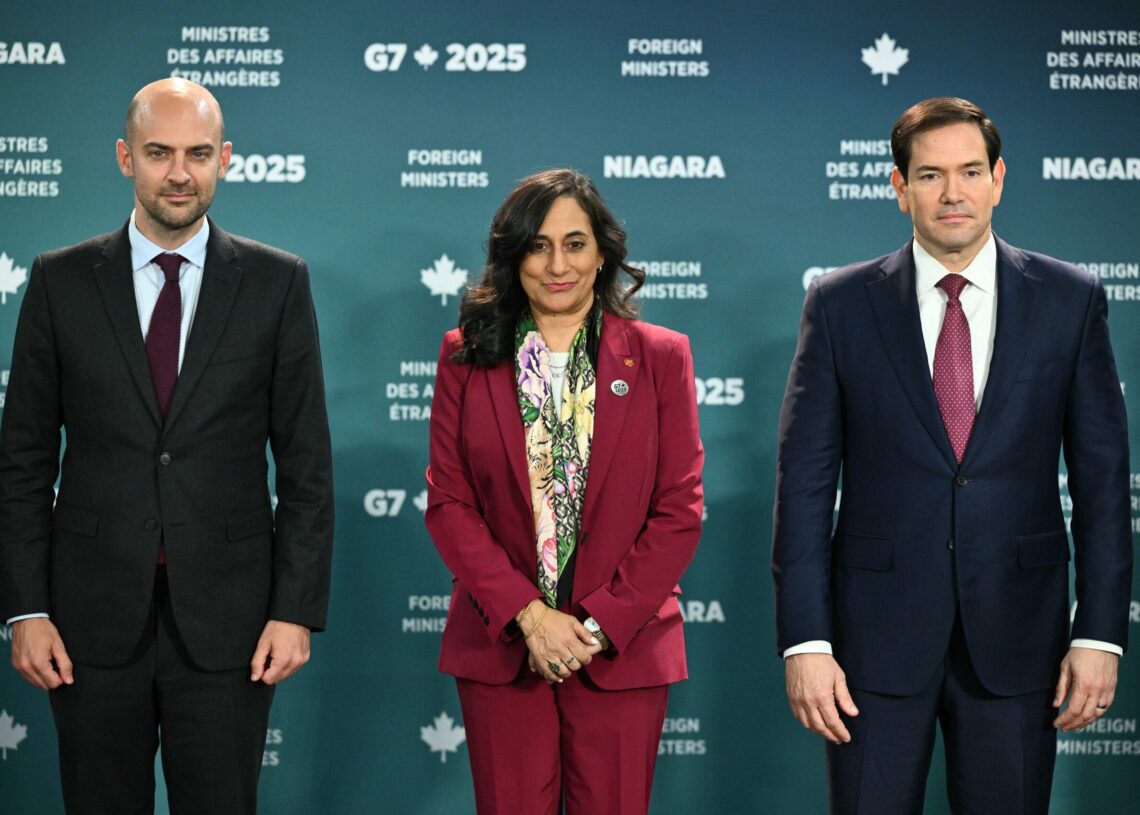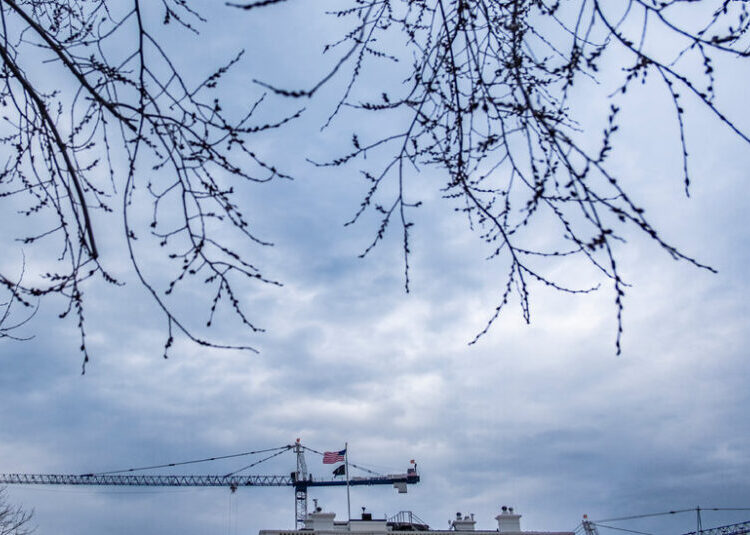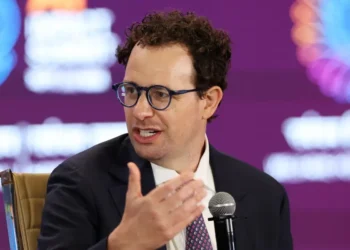NIAGARA-ON-THE-LAKE, Ontario — The Trump administration’s deadly, go-it-alone military campaign in Latin America is facing growing pushback from some long-standing U.S. allies and partners, with France now among those who’ve registered objections to the Pentagon-led killings.
Speaking to reporters at the start of the Group of Seven ministerial meeting, French Foreign Minister Jean-Noel Barrot said his country was troubled by “military operations in the Caribbean region” because they “violate international law” and could lead to escalation in the region, where France holds territories.
NIAGARA-ON-THE-LAKE, Ontario — The Trump administration’s deadly, go-it-alone military campaign in Latin America is facing growing pushback from some long-standing U.S. allies and partners, with France now among those who’ve registered objections to the Pentagon-led killings.
Speaking to reporters at the start of the Group of Seven ministerial meeting, French Foreign Minister Jean-Noel Barrot said his country was troubled by “military operations in the Caribbean region” because they “violate international law” and could lead to escalation in the region, where France holds territories.
His comments Tuesday followed reports that Britain, another key European ally, has paused some intelligence sharing with the United States due to concerns about the legality of the U.S. strikes against alleged drug trafficking boats, and as Colombia — long an essential partner in combating the Latin American drug trade — halted all such cooperation over what its president said was a “human rights” imperative.
British officials have not publicly addressed the reports, stating they do not comment on intelligence matters. Canadian officials, who are hosting the gathering here, have not said whether they had raised the strikes in Latin America during their meetings here with U.S. officials.
Secretary of State Marco Rubio, who is scheduled to return to Washington after his meetings with fellow diplomats conclude later Wednesday, has faced a host of questions about America’s foreign policy in President Donald Trump’s second term. The two-day G-7 meeting, being held just a 15-minute drive from the U.S. border, has been called a celebration of multilateralism by its Canadian hosts. Yet many of the allies gathered here are distant from the United States on several fronts, left out of the administration’s unilateral approach.
U.S.-Canada talks broke down last month when Trump took offense to an anti-tariff advertisement by Ontario’s provincial government. The Ukraine war, a core focus for diplomats here, continues to rage while Trump’s bid to directly negotiate a peace with Russian President Vladimir Putin has foundered.
“We firmly believe that continued collective pressure on Russia is necessary,” Canadian Foreign Minister Anita Anand said as she announced, in concert with Britain, new economic measures targeting Putin’s war machine, including sanctions on drone makers and 100 vessels from Russia’s “shadow fleet.”
And while many G-7 nations celebrated a Trump-brokered ceasefire deal in the Gaza Strip last month, its long-term prospects look increasingly uncertain. The U.S. government is seeking a U.N. Security Council resolution to give a mandate for an international stabilization force in Gaza for at least two years, but administration officials say they are frustrated that other nations are not doing enough.
Rubio, who arrived in Canada late Tuesday, wrote on social media that evening that he was here to work with other nations “to continue our work towards President Trump’s mission of enduring peace around the world.”
The statement seemed sharply at odds with Trump’s campaign of violence in the waters around Latin America. There, his administration has dramatically upended conventional U.S. drug-interdiction efforts and fueled speculation — by amassing close to 15,000 troops and roughly a dozen warships — that he is preparing to order a direct attack on Venezuela.
Trump himself has sent mixed signals about his intentions. He said, “I doubt it; I don’t think so,” when asked in a recent “60 Minutes” interview whether he intends to start a war in Venezuela. Yet when pressed if the U.S. would carry out land strikes as part of his military campaign in the region, as he has mused repeatedly, the president balked, telling the interviewer, “I don’t talk to a reporter about whether or not I’m going to strike.”
Since early September, U.S. forces have killed at least 75 people aboard small boats in the Caribbean Sea and eastern Pacific Ocean. Administration officials have accused the victims of being smugglers, but to date they have not made public any evidence verifying who was on the targeted boats and what they were hauling.
Experts on the laws of war contend that the Trump administration’s activities are illegal because the small vessels being targeted are carrying civilians allegedly involved in the commercial sale of drugs, not armed hostilities against the U.S. or its citizens. The administration has rejected such assertions, but that has done little, it appears, to assuage the concern of stalwart allies like France, and for Rubio it has made for an awkward reception among his G-7 counterparts.
Trump’s own relationship with the G-7, an elite multilateral club of advanced democracies that has met since the 1970s, has long been rocky. The U.S. leader felt he was repeatedly chided by leaders like Germany’s Angela Merkel during his first term as president. Trump also has repeatedly put forward the unpopular suggestion that Russia should be allowed to rejoin the collective. (It was expelled after seizing Crimea from Ukraine in 2014.)
Earlier this year, Rubio had disappointed his Canadian hosts at the ministerial by skipping a set of trust-building activities that included roasting marshmallows. And at a G-7 leaders summit over the summer, Trump surprised allies by announcing that he and Rubio were leaving early from the ski resort town of Banff, Alberta, citing the risk of conflict between Israel and Iran.
Throughout his second term, Trump has belittled the Canadian government by saying America’s northern neighbor should abandon its independence and become the “51st state.”
Speaking to reporters Tuesday, Anand said that Rubio “has not raised [this issue] with me verbatim or even insinuated it.” The top Canadian diplomat met with Rubio later on Wednesday.
The post U.S. allies begin to push back on Trump’s Caribbean military strikes
appeared first on Washington Post.




